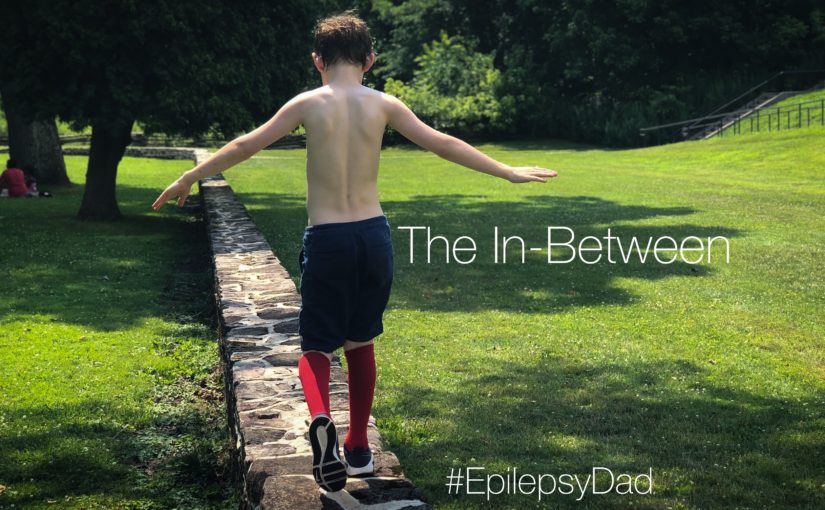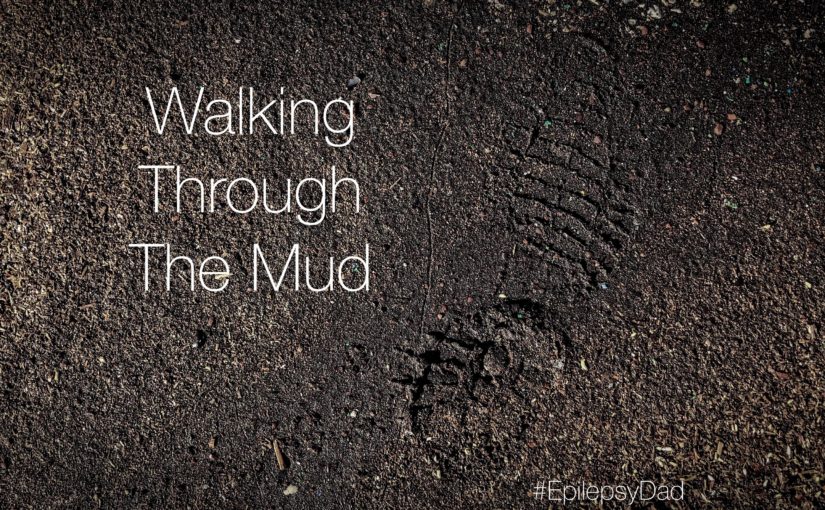I’ve been having a hard time finding the motivation to write lately. The thoughts in my head and the words on the page all seem the same as they have been for the past few months. The past few years.
My son isn’t better. He’s still seizing. He’s still limited. He’s still heavily medicated. We’re still dealing with his school and trying to get him an education.
Everything is harder than it should be.
It feels like I’m walking through mud. Every step takes extra effort. Every step requires my full attention. I need to push my hands through the mud to search for my leg that is trapped in the muck. When I find it, I have to wrap my hands around it and pull it towards the surface. The mud resists, not wanting to let go. Even as my leg reaches the surface, the weight of the mud clinging to my legs and shoes threaten to pull it back down. It leaves me unbalanced. Even though it is only inches in front of where I started, I’m forced to push my foot back through the mud to the ground underneath. Even though I know it means that I will have to struggle for my next step, it’s the only way to find temporary stability. Otherwise, I risk falling over and being fully consumed.
The struggle reveals itself everywhere.
Parenting is harder.
There are fewer right answers. There is more uncertainty. There is more acceptance of things that no parent of a 9-year old should have to accept.
Marriage is harder.
We’re in the same stressful, relentless situation watching our son struggle and seizure, but we have different perspectives and have different needs. We’re both trying to be there for our son but we go at different paces and we aren’t always within reach of one another.
Work is harder.
It’s hard to go to work after endless sleepless nights. It’s hard to concentrate on the work when the mind wants to worry about an upcoming surgery or the handful of seizures he had that morning.
Friendship is harder because we’re so focused on the things we can’t afford to ignore that we ignore the relationships we need. Finances are harder because of the mounting costs of medical care, nanny care and tutoring. Diet and exercise are harder because we’re always so tired and pressed for time and it’s just easier to order something from the couch.
But like many families in our situation, we continue to move forward. We keep taking labored steps towards a destination that we can’t see. Because where we are isn’t where we want to be. Because we hope we are heading in the right direction. Because there is no other choice.
The mud is unforgiving, but in those moments of brief stability in between each step, I sometimes catch a glimpse of something wonderful. The struggle has given us gifts. I am a better parent to my son because I can’t take a moment for granted. I am a better partner and friend to my wife because we know what it is like to truly need and love another. And I have brought my whole self in to work and been surrounded by people who accept and care about me. We found understanding friends. And we have learned the value of trying to live the best life we can with what we have.
It’s not always easy to see these gifts when I’m stuck in the mud. It’s difficult to be motivated when everything feels harder than it should be. But I’m doing my best to keep moving. I’m doing my best to learn and to grow and to be a good father, and husband, and friend. Because, really, there is no other choice.
“The lotus flower blooms most beautifully from the deepest and thickest mud.” ~Buddhist Proverb

